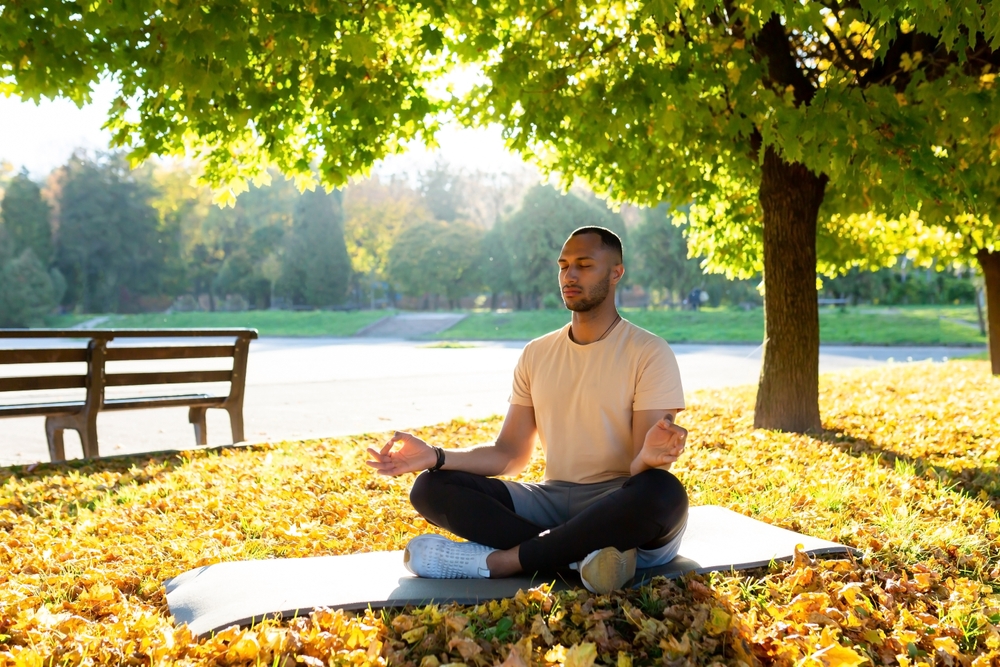What Arriving Early All the Time Says About Your Personality

Some people live fifteen minutes ahead of the world. They arrive early, not by accident, but by instinct. While others are still finding their keys or checking the clock, these individuals are already there, waiting, breathing, watching the world catch up. But beneath this simple act of earliness lies a fascinating psychological story, one that reveals far more about who we are, and why we move through time the way we do.
Being early can look like discipline. It can also look like anxiety dressed in punctuality. Psychologists have found that the habit of arriving early isn’t a single behavior, it’s a mirror reflecting two distinct worlds inside us: one ruled by order, the other by unease.
In truth, every minute we gain by arriving early is not just a moment of waiting, it’s a moment that exposes how we relate to life itself. Whether we chase calm or flee chaos, our relationship with time tells a story about what we fear, value, and strive to control.
The Two Faces of Earliness: Calm Preparation or Controlled Panic

Not all early birds fly for the same reason. For some, earliness is an act of self-mastery. For others, it’s a coping mechanism, a shield against the unpredictability of life.
- The Organized Mindset sees time as a tool. These people are planners, future-oriented, conscientious, and proactive. They wake up early not because they fear being late, but because preparation brings peace. They find joy in readiness, and their punctuality is part of a larger philosophy: order is the foundation of freedom. For them, arriving early feels like harmony; it’s the reward of responsibility.
- The Anxious Mindset, on the other hand, treats earliness as armor. Their earliness is fueled not by structure, but by the fear of what might happen if control slips away. They don’t crave punctuality, they crave safety. Every minute gained is a buffer against imagined chaos, a way to silence the discomfort of uncertainty. The waiting time isn’t a break; it’s a form of emotional insurance.
Psychologists call this difference the divide between proactive and reactive control. The first is powered by confidence; the second, by apprehension. Yet both produce the same outward behavior: showing up before everyone else.
And here lies the paradox, two people can stand side by side, both early, both composed, yet one feels peace while the other fights panic. The clock reveals nothing. The mind reveals everything.
Earliness Reflects Discipline and Respect

At its healthiest, habitual earliness is an expression of character,a visible trace of conscientiousness and respect for others. Studies on personality consistently find that conscientious individuals tend to be punctual, dependable, and future-focused. They manage time not just to stay organized but to honor commitments.
Earliness, then, becomes a quiet signal of integrity. It says, “Your time matters.” In professional settings, this behavior builds trust. In personal relationships, it fosters reliability. It’s no coincidence that cultures that value punctuality,like Germany, Switzerland, or Japan,see earliness as a sign of competence and respect.
This mindset also reflects what psychologists call an internal locus of control, the belief that outcomes depend on one’s own actions rather than luck or circumstance. When people plan buffers of time before meetings or commutes, they aren’t being obsessive, they’re taking ownership of their lives. They refuse to blame traffic or delays, choosing instead to prepare for them. They act on the quiet understanding that chaos may strike at any moment, but preparation makes them resilient.
This sense of personal accountability can have ripple effects beyond punctuality. It shapes relationships, careers, and even mental health. Studies show that people with strong self-regulation often report higher life satisfaction because they feel more in control of their outcomes. In a world where lateness is often normalized, being early can feel like an act of quiet rebellion, a statement that respect still matters.
When Earliness Is Driven by Anxiety

For others, earliness is not empowerment, it’s escape. These are the individuals who arrive early not out of confidence, but because being late feels like failure. Psychologists identify this as anticipatory anxiety, the dread of something going wrong before it even happens.
In this case, earliness becomes a ritual, a way to soothe the nervous system. The act of arriving early temporarily calms the mind, providing a fragile illusion of control. For people with social anxiety, it also offers safety: arriving first allows them to choose where to sit, to avoid the spotlight, and to reduce the social discomfort of walking into a crowded room.
This same behavior can also stem from people-pleasing tendencies, the internalized fear of disappointing others. For these individuals, earliness becomes a silent apology: “I’m here first because I don’t want to inconvenience you.” It’s a form of emotional labor disguised as punctuality. The smile they wear as they wait might hide a racing heart.
And these tendencies don’t form overnight. Many begin in childhood. In some families, punctuality isn’t just encouraged, it’s moralized. Children are taught that being late equals being disrespectful. Over time, this belief fuses with identity. For adults who grew up in such environments, lateness feels like moral failure, while earliness feels like safety. The clock becomes a judge, and they live their lives seeking its approval.
Ironically, this anxious earliness can come with hidden costs. These individuals spend hours of their lives waiting, time lost not to chaos, but to fear of it. The same behavior that earns social praise can quietly erode inner peace.
Culture, Conditioning, and the Clock
Earliness doesn’t exist in a vacuum. How we relate to time depends deeply on where, and how, we were raised.

Anthropologists distinguish between monochronic and polychronic cultures. In monochronic societies such as the U.S., Germany, or Switzerland, time is linear. Appointments are sacred, and schedules are law. To be early is to be respectful. To be late is to be careless. In these environments, earliness aligns perfectly with social expectations, it’s praised as maturity and professionalism.
But in polychronic cultures, like those in Italy, Brazil, or India, time bends to relationships. The rhythm of human connection outweighs the rhythm of the clock. In such settings, showing up early can seem rigid, even cold. What’s considered “professional” in one culture may feel impersonal in another. Here, being late is not disrespect, it’s relational flexibility. The focus isn’t on precision; it’s on presence.
Understanding this difference helps explain why some people experience earliness as virtue and others as burden. Our sense of time is not universal, it’s cultural, shaped by the invisible lessons we absorb about what matters more: the task, or the relationship.
And in a globalized world, these norms often collide. Someone raised in a time-obsessed culture may find themselves frustrated or anxious when operating in a slower-paced environment. Likewise, someone from a more fluid culture may find rigid punctuality suffocating. Recognizing these contrasts not only deepens empathy but frees us from judging others’ sense of time through our own lens.
The Paradox of Time: What Your Earliness Says About You

Arriving early isn’t just a logistical choice, it’s a psychological fingerprint. It reveals how you relate to control, uncertainty, and respect.
- If your earliness brings calm, it may be your way of expressing order and respect. It reflects your sense of accountability and inner discipline.
- If your earliness brings relief, it might be your way of quieting anxiety, an effort to manage the fear of letting others down or losing control.
Both stories are human. Both are valid. The key is awareness.
Being early isn’t inherently good or bad, it’s meaningful. It’s a form of self-expression written in minutes. The question is not whether you arrive early, but why.
If earliness costs you peace, it’s worth asking: Are you managing time, or is time managing you? And if it grants you peace, then maybe it’s not about the clock at all, but about who you choose to be in a world that’s always running late.
Ultimately, understanding your reason for being early can transform the habit from reflex to reflection. It allows you to choose presence over pressure, preparation over panic. It reminds you that control is not found in racing ahead of time, but in aligning with it.
Timely Wisdom

We live in an era obsessed with time, saving it, chasing it, wasting it. But the truth is, time is just a mirror reflecting what we value. For some, it’s control. For others, it’s care.
The next time you find yourself waiting fifteen minutes early, take a breath. Notice the quiet. In that silence, ask yourself, not just where you are, but why you’re here. Because sometimes, being early is not about arriving ahead of others. It’s about finally catching up with yourself.
And maybe that’s the real message of earliness: it’s not just about respecting time, but about learning to live in harmony with it. When we stop racing against the clock and start aligning with it, punctuality becomes more than habit, it becomes wisdom.
Loading...

